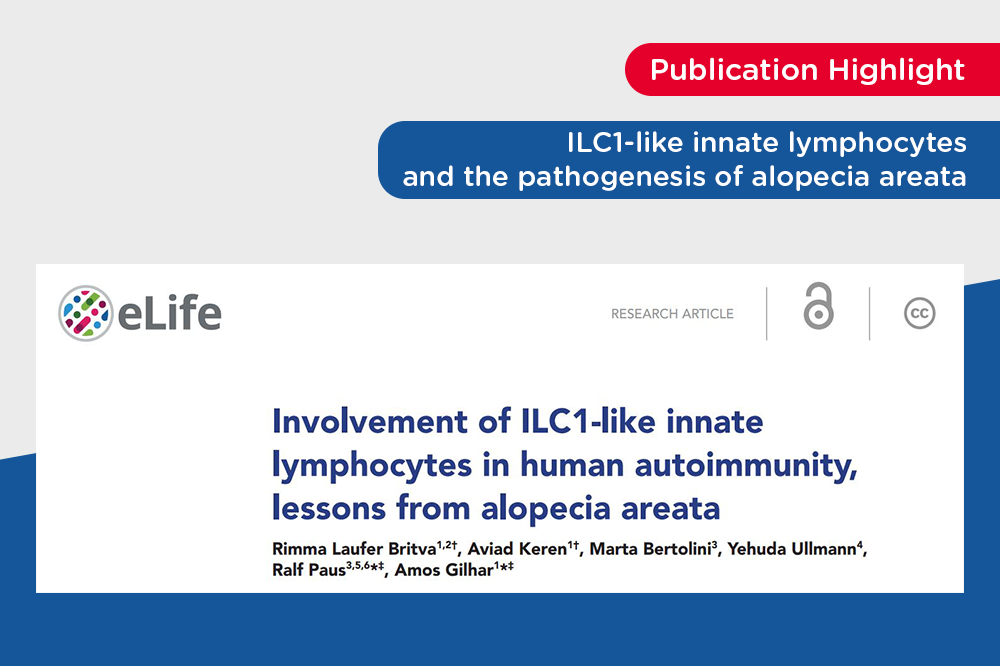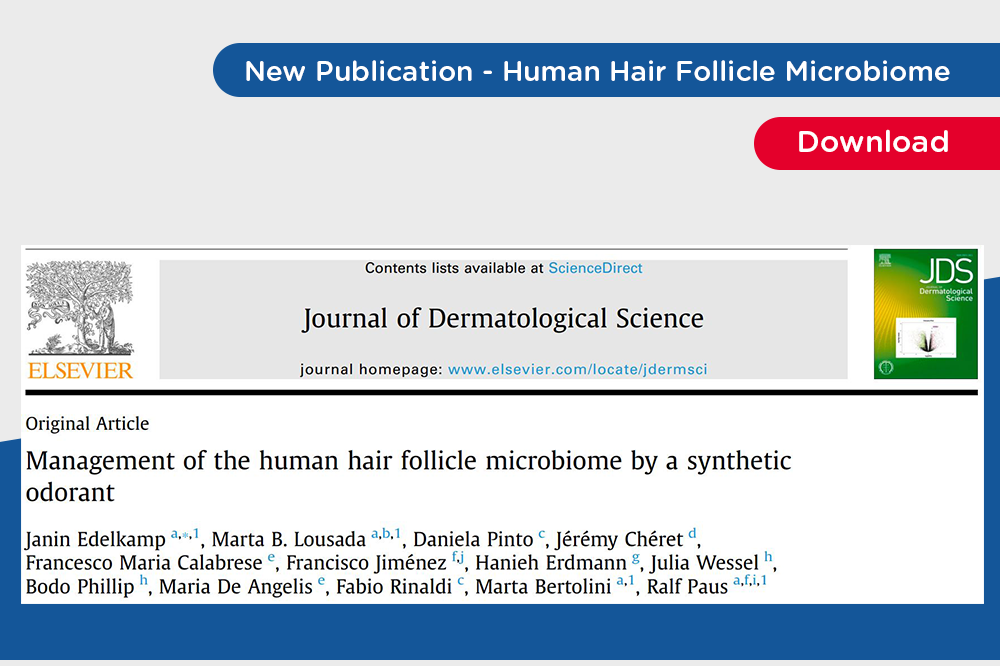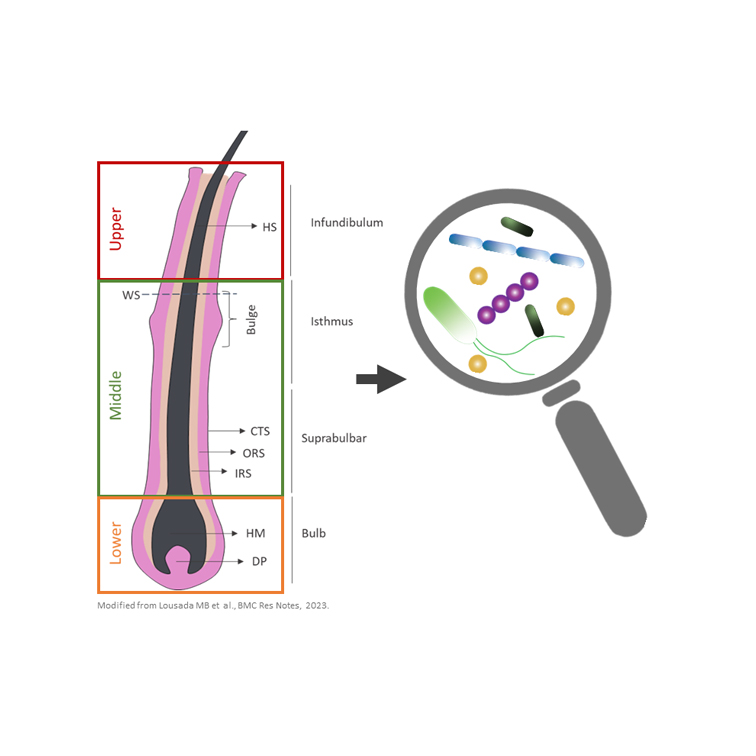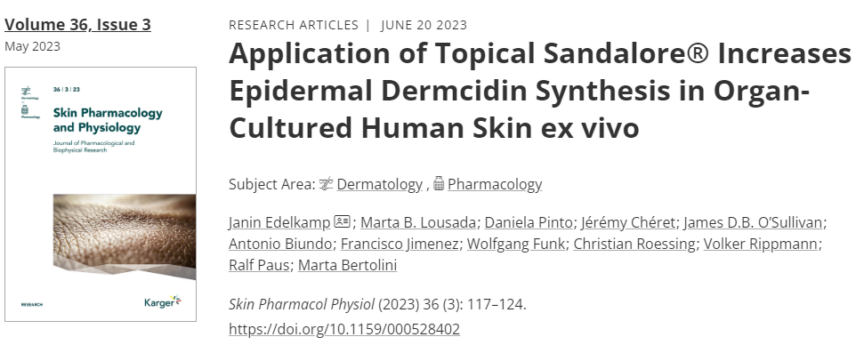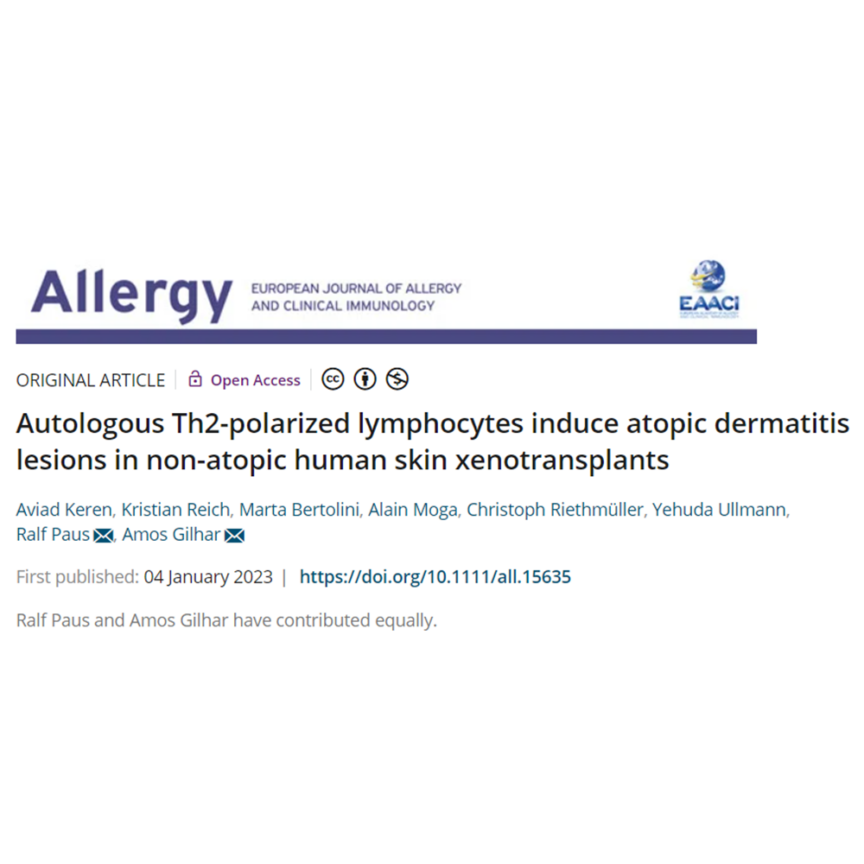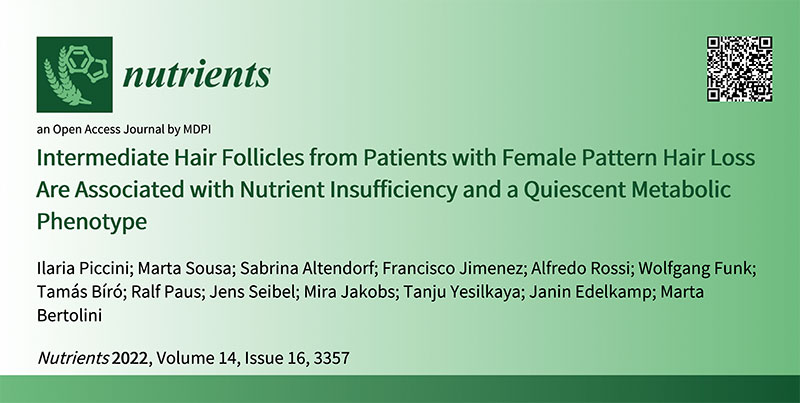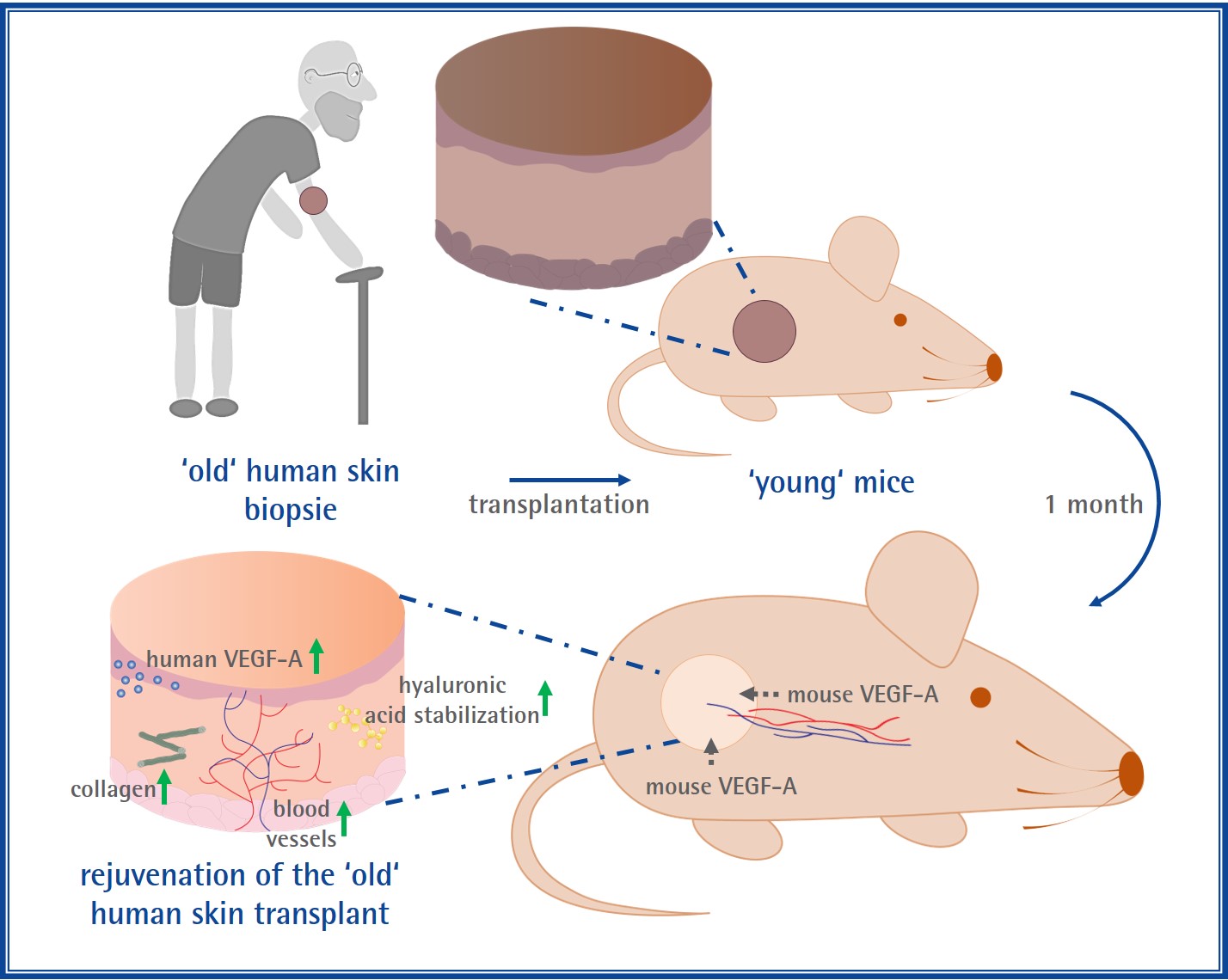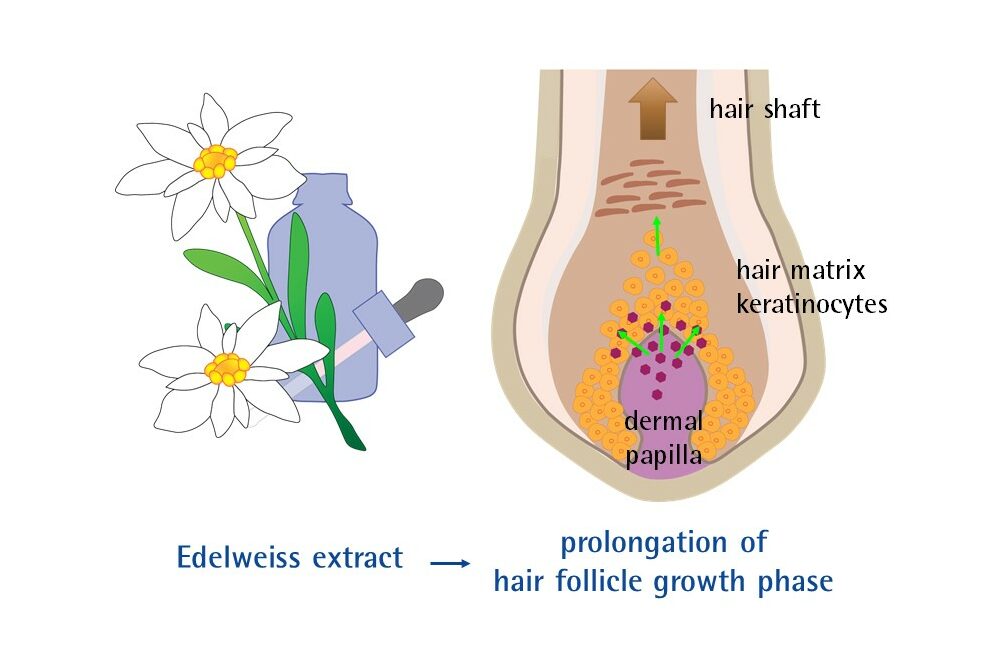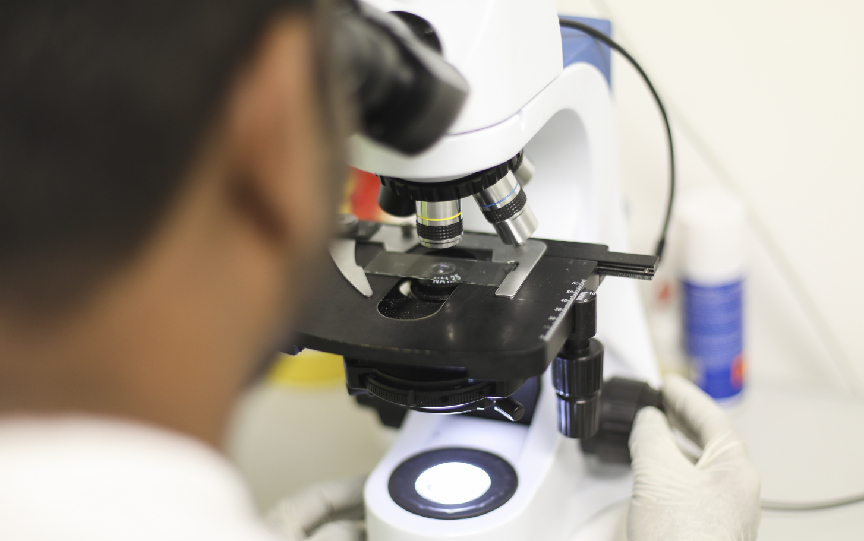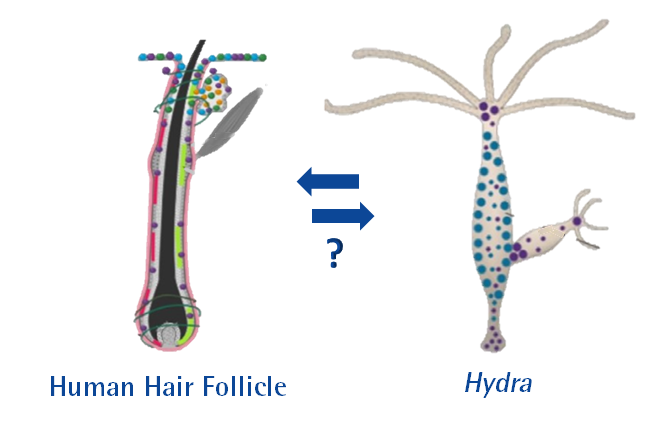Research Highlights
We are constantly pushing our boundaries and enhancing our expertise by designing and establishing new services for our clients. Please do not hesitate to contact us if you have any queries regarding our services.
For inquiries, please contact our Acting CEO, Dr. Marta Bertolini (protected email).
Vellus-to-terminal hair follicle reconversion is induced by topical minoxidil and platelet rich plasma therapy in the humanized mouse model of male pattern androgenetic alopecia In this short communication, recently published in Journal Acta Dermato Venerologica, the authors challenged a current hypothesis claiming that human hair follicles (HFs) cannot reconvert from vellus to terminal states […]
Research Highlight: ILC1-like innate lymphocytes are involved in the pathogenesis of alopecia areata
Discover in one of our latest publications how we successfully employed our humanized mouse model for alopecia areata research Alopecia Areata (AA) is one of the most common inflammatory hair loss disorders. For the development of efficient treatment strategies it is crucial to understand the pathogenesis of the disease. However, the exact mechanisms how […]
We are proud to share our latest publication about the human hair follicle microbiome and its regulation by Sandalore®, a synthetic odorant and specific agonist of the olfactory receptor OR2AT4, published in the Journal of Dermatological Science. In this first proof-of-principle study the authors show that a cosmetic odorant affects human HF microbiome by human […]
Hair follicle (HF) disorders such as acne vulgaris and hidradenitis suppurativa, also known as acne inversa, develop in response to dysregulations (imbalances) of the HF microbiota, i.e. the community of microorganisms that inhabit the human HF. Research on the HF microbiome composition is increasing and knowledge about the distinct types of microbiota present in healthy […]
Originally, olfactory receptors (ORs) were described to detect odors. Consequently, they are well known to play a central role for smelling in mammals. However, ORs are not only expressed in the nose, instead we, at Monasterium Laboratory, demonstrated that their physiological functions extends beyond that of olfaction, since these receptors are also functionally expressed in […]
In this study, recently published in the high-ranking scientific journal Allergy the authors, including our founder Prof. Ralf Paus and acting CEO Dr. Marta Bertolini, describe the development of a novel humanized mouse model of AD that reflects the most important hallmarks of human AD (learn more here). We are proud to announce that this study is […]
The USA, UK and Europe have recently approved the JAK inhibitor baricitinib/Olumiant® to treat severe cases of adult alopecia areata (AA). However, despite these good news, JAK inhibitors are still in an early stage of clinical investigation and until now many other countries do not allow their use outside of clinical trials. Currently their long-term […]
Psoriasis is a chronic inflammatory skin disease characterized by dry, itchy and scaly patches. Patients suffer greatly from both, the negative features of the symptoms as well as psychologically from i.e. poor self-esteem or social isolation. For the development of adequate treatment strategies, clinically relevant models are inevitable. Much of the current knowledge of the […]
People throughout all cultures care greatly about keeping their hair healthy and strong, and the array of hair care products is continuously expanding. Whilst wash and care hair products might be enough for maintaining hair fiber health, more specialist treatments are needed for preventing hair loss. In this regard, nutritional supplementation is often recommended as […]
“Age is an issue of mind over matter. If you don’t mind, it doesn’t matter.” Mark Twain Not everyone shares Mark Twain´s carefree view on aging. Quite the contrary, many individuals fear getting older. Therefore, effective strategies to prevent, or even reverse aging are highly demanded. However, clinically relevant research models to identify key […]
In close collaboration with DSM , we showed that an extract of the alpine plant Leontopodium alpinum, or Edelweiss, inhibits hair loss in humans by prolonging the hair follicle growth phase, called anagen, during which the hair shaft, the visible part of the hair, is produced. Our findings, published in the International Journal of […]
Generation of a novel humanized mouse model for pre-clinical in vivo studies on androgenetic alopecia Amos Gilhar, Aviad Keren, Yehuda Ullmann, Jeff Wu, Ralf Paus Gilhar A, et al. Exp Dermatol, 2022 Male-pattern baldness, also known as androgenetic alopecia (AGA) is a common form of hair loss. It is characterized by a conversion of the […]
At a first glance, the human hair follicle and the freshwater polyp Hydra do not have much in common. However, in a recently published debate article in the Journal BioEssays “Problems & Paradigms” from our PhD Student, Marta Lousada, the authors compare the way Hydra manages its microbiota to the way the microbiome is regulated […]
Adiponectin negatively regulates pigmentation, Wnt/β‑catenin and HGF/c‑Met signalling within human scalp hair follicles ex vivo Carina Nicu, Jennifer Jackson, Asim Shahmalak, Jenny pople, David Ansell, Ralf Paus Arch dermatol Res, 2021 A compelling study comprising “the effect of the hormone adiponectin on human hair follicle function and pigmentation” was recently published by the team of […]
Hair follicles (HFs) in the growth stage (anagen) exhibit a great degree of cell division. On top of this, there is a high rate of protein synthesis to support keratinization of the growing hair fiber. As a result, the HF must have access to an ample supply of adequate nutrients, which are then metabolized to […]
Comprehensive & interdisciplinary expertise that covers the entire field of hair & skin research.




